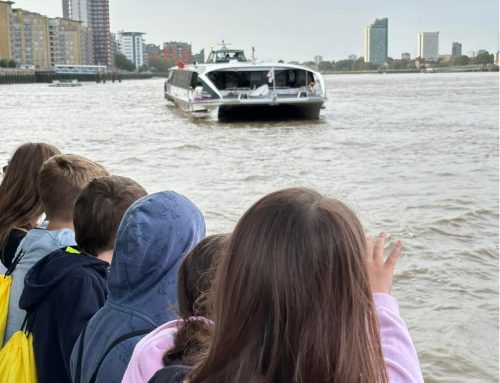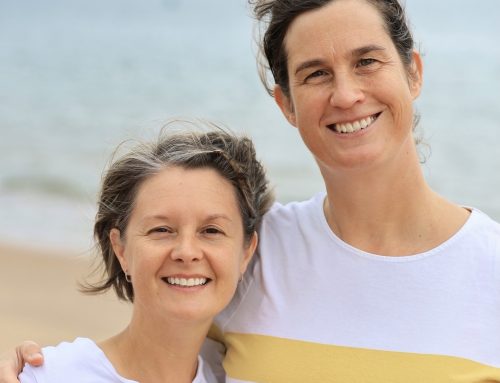
I currently have the privilege of both living with a teenager and working with them too.
In my teacher training and formative classroom years, I specialised in the crucial early 0-5years phase and I was passionate about how the nurture offered at that stage of a little human’s life affected their essential skills and fundamental developmental learning for everything that came afterwards.
Over the last twenty years my experience has broadened whereby I have been lucky enough to teach and work with 3 yr olds up to adults, and everything in between. I still believe wholeheartedly in the value of early education, and when I am observing practitioners work with this age group, I am always reminded of the constant reward and wonder that each day with young children offers; as well as the incredibly hard work too! I believe that educators in the early years field should be valued and respected far more by our society than they currently are, and given greater recognition of their valuable work.
All that said, over recent years of working with pre-teens and adolescent young people, my eyes have been opened to the wonders and rewards of educating and parenting this age group too. When you really observe the harsh reality of the environment today’s teenagers live in, the difficulties they face, and the challenges they continue to navigate as they progress into adulthood, you will see how much there is to learn from them, as they learn to find their place in the world.
So that is what this blog is about; my observations of the precarious pathways our teens are navigating; the tests and temptations they’re facing and ultimately empathy and ‘togetherness’ they need from us, their educators and parents to get them over the line to adulthood safely.
Adolescence is a period in a young person’s life when they no longer need the adults in their lives to hold their hands to keep them steady. They don’t need tucking into bed, being read a story, feeding or picking out their clothes. They are overwhelmed with a new body chemistry courtesy of their rising hormones and, in many cases, they are growing at a rate that their wardrobes (and our wallets) can hardly keep up with. They are going through a process of self discovery and identity development. And it is exhausting! Not just for them but also all the adults in their lives.
Every day is a test of their energy, motivation, confidence and enthusiasm. Physically the average adolescent needs between 8 and 10 hours of sleep every night but modern lifestyles mean most teenagers only get about 6.5 – 7.5 hours. Combine this with a test of self discipline when it comes to switching off devices at bedtime to shut down for the night, many are living their lives in constant sleep deficit and all the challenges that go with it.
Other tests our teens have to navigate is those of self-assurance and self-worth. The concept of populism suddenly appears at school and the mob mentality it creates encourages a dysfunctional adolescent sub-society that favours a manufactured and ideological idea of body image, and a range of distorted values and priorities. The scrutiny of rapidly changing and developing bodies, personal identity can be unsympathetic, exacerbated by the relentless march of new social media apps and platforms that create an unprecedented level of digital connectedness from which it is impossible to escape. As a result, we’re no strangers to headline after headline reporting alarming levels of poor mental health and crisis in adolescent emotional wellbeing, with 10% of children and young people having a clinically diagnosable mental problem¹ between the ages of 5 and 16.
Alongside these tests are the natural human temptations to try and make the journey more comfortable to navigate. The peer pressure ‘pull’ that promises validation and acceptance, can drive poor decision making and increased risk taking behaviour such as substance abuse or delinquency. Social deprivation can be a key factor in heightening this with the poorest teenagers tending to have the worst levels of adversity. Indeed, it is believed 40% of adolescents around the world are not educated at all and have no access to support or advocacy during this period of their lives.
All in all it could be fair to say that the teenage years are some of the most challenging that humans experience. Thankfully however, there are many professionals and theorists who are promoting and supporting the notion that this needs belief to be reframed. We are in danger of enacting that idea of a self-fulfilling prophecy if we perpetuate a sense of ‘hopelessness’ when we think of adolescence. Daniel Siegel is one such professional. He actively writes about how the adolescent period is actually a wonderful time of opportunity and enrichment for our young people. Siegel uses the acronym ‘essence’ to describe these key aspects of adolescence as opportunities:
Emotional spark, social engagement, novelty and creative exploration
For those who have studied brain development you will know that this time is when the brain is remodelling itself. The upper prefrontal cortex that is responsible for decision making, planning, social interaction, and self-awareness rapidly develops, but the limbic system which is responsible for emotions and reward is hyper sensitive; creative risk taking behaviour and impulsiveness born of curiosity and a craving for exploration. Whilst these can be perceived as negative traits in many contexts, it so clearly explains this ‘essence’ of adolescence and I think really shows how it should be perceived as a time of excitement and a journey of discovery.
So how can we, the adults, help our teens ensure their pubescent years are constructive and happy? How can we help them meet the tests and temptations and have a fruitful life?
In his book ‘What teens want you to Know (but won’t tell you)’ Roy Petitfils summarise this perfectly; he says we do it with empathy:
Why does popularity affect teens so much? Because they want to both blend in and be noticed at the same time. Nobody wants to be invisible, but equally nobody wants to have too much attention, when it is negative attention. This impossible tightrope means that it’s our job as educators and parents to ‘see’ them so they have the validation and visibility that they both crave and deserve, so that they feel empowered and heard.
Being ‘together’ with the teens in our care will help them shape their journey of self discovery, knowing they have a mentor walking behind them being watchful of their needs and ready to hear them, ready to nurture their emotional sparks, ready to encourage them to creatively explore novel situations with bravery.
Our society needs to stop pointing out the unpleasantness of being an adolescent, and framing teens as creatures that ‘don’t care’ or who ‘refuse to listen’. We need to collectively bring them together with us, show them empathy and sensitivity as they travel through a period of their lives where they are preparing and rehearsing to become adults.
It is frightening, daunting and invigorating at the same time. And if we open our eyes and ears, we may just learn something ourselves along the way…
¹Mental Health Foundation
References / Bibliography
Petitfils, Roy (2015) What Teens Want You to Know (but Won’t Tell You)
Daniel J. Siegel, Tina Payne Bryson (2014) No Drama Discipline
Daniel J Siegel, (2014) Brainstorm: the power and purpose of the teenage brain
Videos
Daniel J.Siegel Why adolescence is a wonderful stage of life. Aprendemos Juntos 2030 Available at: https://youtu.be/tFPw5PWbeVc?feature=shared
Roy Petitfils What Teenagers Want You to Know TEDxVermilionStreet. Available at: https://youtu.be/fC2z69q3L0o?feature=shared




